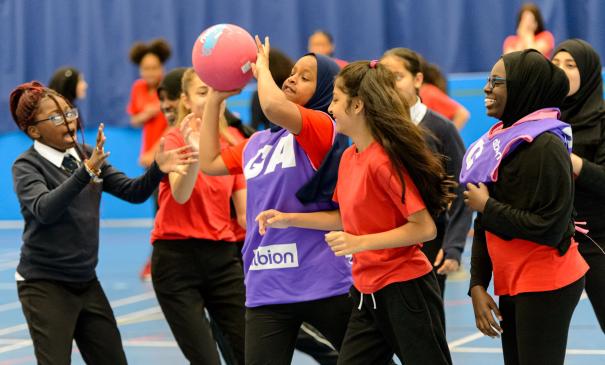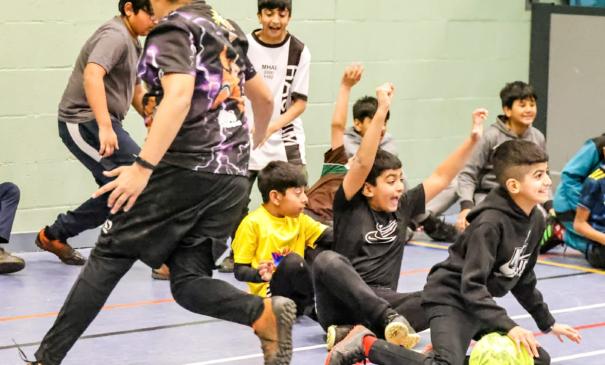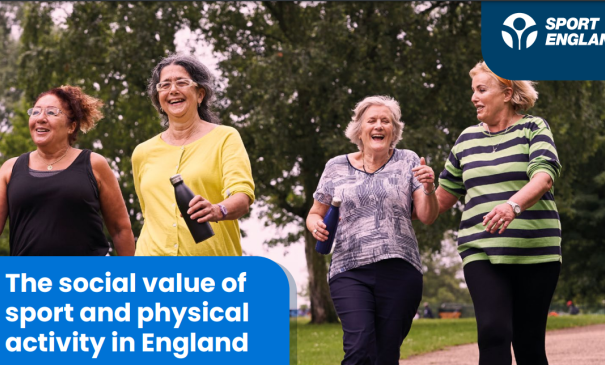Tom Clarke-Forrest is Chief Executive of Sport 4 Life UK, the West Midlands-based charity which aims to help young people from disadvantaged backgrounds move into sustained education, training and work through sports-themed personal development. As part of our ‘Adapt, Support, Respond’ campaign, Tom describes how Sport 4 Life has adapted to keep supporting young people through lockdown, and aims to contribute to the recovery from the pandemic.
Now, more than ever, we need to work together to ensure young people, communities and organisations stay safe and as strong as possible. We are committed to working with our partners to continue to support young people in creating a better future for themselves.
Our Coronavirus action plan includes support for schools, key workers and young people isolated at home. Online mentoring through Google Hangouts and other virtual platforms, connects young people (aged 11 to 29) with experienced Sport 4 Life UK mentors to support them in making confident and informed decisions about their future, as well as the opportunity to check in on their wellbeing. This virtual and remote mentoring is a supportive, structured relationship which helps young people develop skills and achieve their goals.
MENTORING
With the closure of schools, colleges, and increased social distancing and isolation measures, we are finding new ways of supporting young people. Our online mentoring is a free service for schools, helping to provide one-to-one support and structure to pupils (aged 11-plus) to increase self-confidence and improve physical and mental wellbeing. We will work with schools to support the most vulnerable individual students staying at home, or provide group activities for those still in the classroom. We also deliver qualifications with free bursaries.
From previous lockdowns, we have learnt the importance of young people's wellbeing and mental health, the need to provide IT equipment so they can continue to engage (and tackle a significant digital poverty issue), and the importance of prioritising the wellbeing and support of our own staff - so they are best equipped and prepared to support our beneficiaries, who need our help the most. We are continuing to learn the effectiveness of cutting-edge IT and online systems and processes. We are also continuing to learn of the devastating impact on youth unemployment and youth mental health - and how we can continue to do all we can to tackle this.

Over the next few months, our programmes will support young people across the West Midlands to:
- Improve their mental health and wellbeing (measured against the WEMWBS framework)
- Gain accredited qualifications
- Transform their key life skills (measured against the Outcome STAR framework)
- Progress from NEET to EET (re-engaged with employment, education or training)
- Move into a sustained job
Over the next three months, we expect to engage approximately 200 young people, and meaningfully support 100 of these into the above outcomes.
It is important that these outcomes are sustained because we know that young people are struggling with their self-esteem and mental health, and are feeling disillusioned. Young people who are able to continue to engage with education, gain new skills, and stay physically and mentally healthy will increase their chances of future progress and future success. There are also a number of opportunities, such as the KickStart job scheme, that young people can benefit from. Young people from disadvantaged background will suffer worse than their more affluent peers, and so it is vital that organisations like ours provide this additional support.
RESTRICTIONS
Nonetheless, while we have been able to offer a blend of 'in-person' and 'virtual' services in the past (as lockdowns and restrictions have changed and eased), we are currently unable to deliver physical sport sessions. This is a concern because the evidence is clear on the negative impact on young people's physical health. We are working hard to keep young people active at home, but this isn't the same as delivering structured physical activity sessions in a youth-led way in our communities.
With regards to the sustainability of our organisation, Sport 4 Life UK is in a strong position (both financially and operationally) in the short and medium term. Indeed, we have experienced growth as a result of the pandemic. A key reason for this is an increased demand for our services, as youth unemployment and young people’s needs have increased, as well as the organisation's growth strategy outside of Birmingham and into new areas of the West Midlands. In addition to this, we were successful with a number of the emergency Covid-19 grant schemes that were available last year. As such, we expect our capacity to be increased in six months’ time. However, the longer-term landscape is less clear, and there is likely to be an increased competition for funds (including grants and contracts). It is therefore vital that we continue to innovate, work hard, and allocate sufficient resources to ensure we can sustain this growth - and ultimately continue to provide the support the region's young people need at this challenging time.

It is especially important that we continue to work with these user groups because the UK is experiencing a jobs crisis greater than any we have faced before. We are seeing the biggest rise in unemployment in over a century - on a scale higher than the Great Depression. Young people always fare worse in a downturn, and the impact of this reverberates through the years. Many have lost their jobs as a direct result, and for others - including those still in education - the prospect of future work and success seems increasingly distant. Interlinked to this crisis is a sharp downturn in young people’s mental health and wellbeing, and a disproportionate impact on disadvantaged and ethnic minority communities. The vulnerable and marginalised always suffer worst, and suffer longest. Supporting young people’s employment opportunities – in the immediate and long term – will be key to ensuring that the UK makes a rapid and full economic recovery from Covid-19.
The sector’s response needs to be sustained and strategic at the same time as being flexible and nimble to react to new realities and heightened social challenges that will undoubtedly come in the months and years ahead. It is also paramount that we continue to be evidence-led and data-led - seeking to understand from young people, be guided by what works (and what doesn't), and finding new and innovative ways to reverse inequalities and level the playing field.



